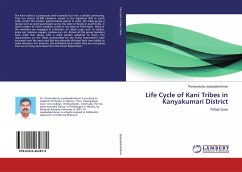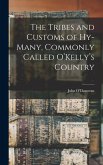The Kani tribes is a previously small nomadic but now a settled community. They are almost 25,000 members, based in the Agasthiar Hills in south India. Under the modern administrative system in India, this tribal group is spread over six gram-panchayats across the state of Kerala in south India. A small number of other members reside in the state of Tamil Nadu. Most of the members are engaged in cultivation of mixed crops such as rubber, areca nut, banana, pepper, cashew nut, etc. Almost all the group members have small huts along with a small garden attached to them. The requirements on the tribal communities by the Forest Department have increased over the years and this has adversely affected their own ability to make decisions. For instance, the individual areas which they are occupying now are on long term lease from the Forest Department.
Hinweis: Dieser Artikel kann nur an eine deutsche Lieferadresse ausgeliefert werden.
Hinweis: Dieser Artikel kann nur an eine deutsche Lieferadresse ausgeliefert werden.








